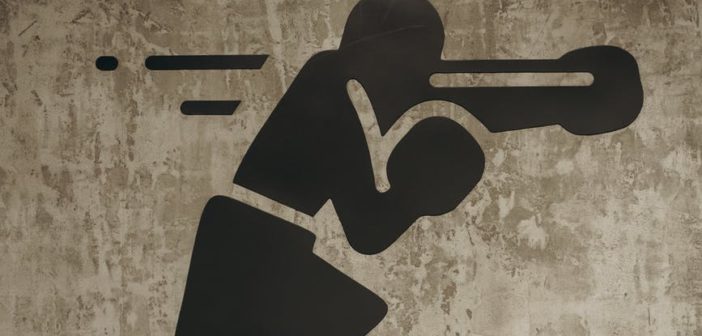By Mariana Navarette, Contributing Writer
Throughout history, professional athletes have used their power and platform to advocate for various social causes. It does not matter if their protests, during their matches, games, or competitions, are controversial and prevent them from winning; their passion for protesting for injustice goes above all.
1936 Olympics at Nazi Germany
Jesse Owens was the first black African American to win four gold medals in track and field at the Olympics in Berlin 1936. Owens, with other African American athletes, defied the propaganda the Nazi regime wanted to impose during the Olympics about Aryan superiority.
Owen’s gold medals were a symbol of racial equality.
Muhammad Ali
Muhammad Ali was the first boxer to win the world heavyweight championship on three separate occasions; he successfully defended this title 19 times.
Ali was banned from boxing by the U.S. authorities after he refused to join the U.S. Army because he opposed the Vietnam War.
“My conscience won’t let me go shoot my brother, or some darker people – some poor, hungry people in the mud – for big powerful America,” Ali said.
Ali spoke out repeatedly against racism and joined the radical black civil rights movement, the Nation of Islam. He later campaigned against Islamophobia in the U.S. following the 9/11 attacks.
1968 Olympics
African American runners Tommie Smith and John Carlos won gold and bronze at the 1968 Olympics in Mexico City. As they stood on the winning podium, they rose a single gloved fist as the national anthem played. Smith and Carlos proceed to take off their shoes to gesture Black poverty and wore beads symbolizing U.S. lynching history. Both were booed in the event and suspended from the U.S. track and field.
Smith’s and Carlos’ gestures were motivated by the “Olympic Project for Human rights” led by activist Harry Edwards. It advocated an Olympic boycott by Black athletes to spread awareness of systematic racism and injustice against black athletes in the sports industry.
The Williams sisters in the Tennis Court
Serena Williams and Venus Williams boycotted the tennis championship Indian Wells for 14 years due to allegations of racism in 2001.
“The undercurrent of racism was painful, confusing, and unfair. In a game I loved with all my heart, at one of my most cherished tournaments, I suddenly felt unwelcome, alone, and afraid,” Serena Williams wrote in TIME.
Boycotting the game hurt the Williams’ professional rankings since the Indian Wells tournament is one of four required competitions for the World Tennis Association players. The boycott put tennis culture’s racism in the media spotlight every year, as tennis-watchers wondered whether the sisters would ever return.
Naomi Osaka Boycotts WTA
Two-time Grand Slam winner Naomi Osaka withdrew from Western & Southern Open in protest for racial justice ahead of next month’s U.S. Open, leading the tournament to pause indefinitely.
“As a Black woman, I feel as though there are much more important matters at hand that need immediate attention, rather than watching me play tennis,” Japanese tennis star, Osaka, said in a statement posted on Twitter.
Osaka has since worn Black Lives Matter shirts and facemasks during her matches and is an active advocate in social media towards racism against Black people and Asians in the United States and worldwide.
Black Lives Matter at the NFL
The originator of the “take a knee” protest is ex-NFL star Colin Kaepernick. He first knelt during the U.S. national anthem in the summer of 2016 to protest police violence against African Americans. Former President Donald Trump voiced his outrage over the protest, and Kaepernick couldn’t find another team after his 49ers release.
The “take a knee” protest evolved like a domino effect to other football teams and even other sports. NFL stars Patrick Mahomes, Saquon Barkley, Michael Thomas, and other dozens of players called on the league to condemn racism through videos on social media during the weeks after George Floyd’s murder.
Black Lives Matter has gained so much importance in the NFL that it is currently pledged to contribute to the cause, as stated on their communications website.
“The NFL is growing our social justice efforts through a 10-year total $250 million fund to combat systemic racism and support the battle against the ongoing and historical injustices faced by African-Americans.”
Black Lives Matter at the NBA
The NBA has demonstrated solidarity with the “Black Lives Matter” movement as well. In the restart of the NBA season in 2020, every player outside of a few exceptions kneeled during the national anthem and all wore “Black Lives Matters” shirts in the wake of Floyd and Breonna Taylor’s deaths.
The “take a knee” movement with the Black Lives Matter protests made the NBA players vocal in their social justice calls.
Los Angeles Lakers superstar LeBron James points to the sky in the majority of his games in recognition of the victims of police brutality.
“I hope we made Kaep proud,” James said to CNN. “I hope we continue to make Kaep proud. Every single day I hope I make him proud of how I live my life, not only out on a basketball floor but off the floor.”
Black Lives Matter in Soccer Leagues
In the first game of The U.S. Women national soccer team in November 2020, they wore Black Lives Matter jackets to “affirm human decency,” as they posted on Twitter. “We collectively acknowledge injustice, as that is the first step in working towards correcting it.”
The Bundesliga has also awoken to embrace the Black Lives Matter movement. The German team Bayern Munich created a campaign against racism using t-shirts that said “Reds against racism.”
It’s clear that sports are a platform for athletes to speak out, spread awareness, boycott, and protest against social and racial injustice. As Nicole Anyomi from the Essen professional soccer team said after celebrating a goal with a take-a-knee pose, “We have to be active and raise our voice and speak out. If something happens, you can’t just stand by, look on and say nothing.”





